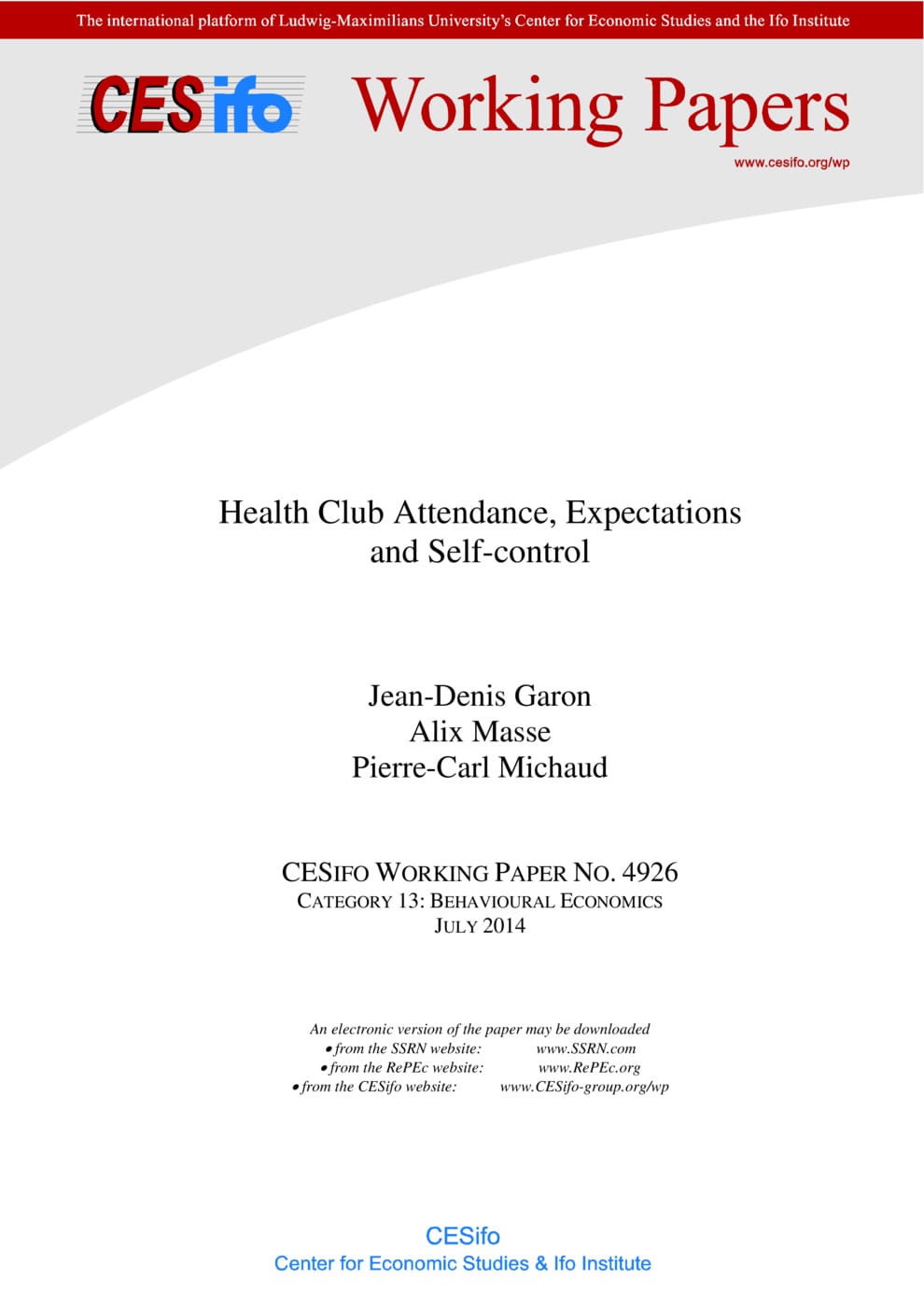Health Club Attendance, Expectations and Self-control
CESifo, Munich, 2014
CESifo Working Paper No. 4926

Using a unique dataset on health club attendance from Quebec, we look at the relationship between actual and expected attendance and how these relate to a reported measure of self-control problems at the time of contract signing. We find that a large majority of contract choices appear inconsistent purely on financial grounds: 47.5% of members would be better off paying the fee for a single visit each time they go to the gym rather than signing a long-term contract. The median total cost of making a mistake on this decision is $262. We then compute that almost all members have made the right decision once we use subjective expectations of the number of visits per week at the time of contract choice. Next, we study how actual attendance following contract choice is related to baseline reports of self-control. We find that reports of self-control problems at baseline are associated with low future attendance and that attendance decreases faster, in particular after New Year. Finally, those with a large gap between expected and realized attendance have a much lower probability of contract renewal. Our results are consistent with a model of health club participation where agents underestimate the severity of their self-control problems.
Behavioural Economics